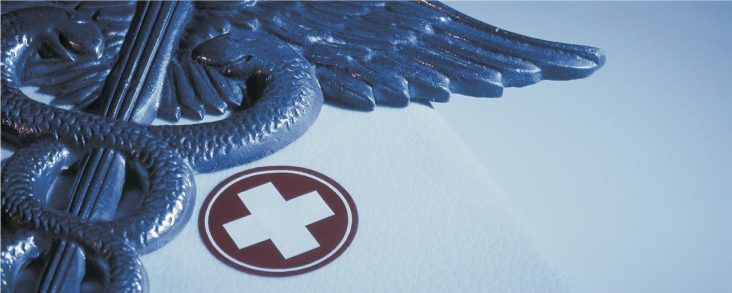Build Bentonville lunch focuses on health and wellness
by August 15, 2019 7:06 pm 674 views

Health and wellness in Northwest Arkansas are changing and that affects the local economy, according to healthcare, education and business leaders who spoke Thursday (Aug. 15) in Bentonville.
The Greater Bentonville Area Chamber of Commerce hosted the panel discussion at its quarterly Build Bentonville Lunch at the 21c Museum Hotel.
Participating panelists included Charley Clark, principal of Pea Ridge High School; Kurt Berman, director of Blake St. House, a health- and wellness-based membership club in Bentonville; Dr. Brian Bakke, staff and wellness specialist of Purely Natural CBD; Dr. Stephen Goss, president of Mercy Clinic of Northwest Arkansas and Dr. Scott Musick, family practitioner at Northwest Medical Plaza at Sugar Creek, a clinic in the Northwest Health network. Graham Cobb, president and CEO of the Bentonville chamber, moderated the discussion.
Musick discussed the challenge of serving the number of new patients needing healthcare because of the growth in the region. He said he sees 48 patients a day and 10 of those are new. Northwest is trying to build a network of doctors so that people can get an appointment for medical care when they need it, he said.
With the drive for quality in healthcare, there is also a drive to decrease costs, Musick said. Northwest is emphasizing primary care appointments to maintain good health. That will break the cycle of people going to the emergency room and ending up in the hospital over and over again, he said.
A new service that Northwest is providing in the area are ‘low intervention birthing units’ as women move to more natural births and want less invasive care, he said.
Goss addressed the challenge of treating the large population of non-English speaking people in the area. He gave the example of the large Marshallese population in Northwest Arkansas and the difficulty in medical translation from English into the Marshallese language.
“Their language doesn’t contain many of the medical terms we use. There’s not a term for ‘stethoscope’ in Marshallese, so it’s a particular challenge for us,” he said.
Mercy works “pretty closely with UAMS, which has a Marshallese outreach in their clinic,” Goss said. “We’ve tried having an exploratory group go to the Marshall Islands to start training some of our residents there in their culture. They have very unique healthcare needs that are usually severe.”
For Spanish, Mercy offers translators medical interpretations classes. There are about 20 Spanish translators at Mercy Hospital, as well as one in each clinic.
Interpretive services are also available through an iPad, “where you can call up someone who speaks their language and they can communicate through the iPad,” Goss said.
Goss said the healthcare industry moves the region forward by providing jobs, as well as by helping avoid absenteeism and helping workers be more productive on the job.
Clark told the crowd about the Pea Ridge Manufacturing and Business Academy (PRMBA). Clark said the school worked with Mike Harvey at the Northwest Arkansas Council to identify different areas of growth and employment for the district’s students and then worked to teach that at the high school level.
Marketing, logistics and healthcare were identified as key areas of employment. For students interested in healthcare, they take a medical terminology course at NorthWest Arkansas Community College during their junior year in high school and then begin a Certified Nursing Assistant (CNA) program during some of their classroom hours. In the last program, the CNA pass rate was 100% for the 21 students in the program.
Clark encouraged business leaders to give him input as to what jobs they will need to fill in the future so that the school can offer training for those jobs.
Bakke spoke about trends in non-traditional medicine. “You’re seeing a lot of research taking place where they’re looking at the individual characteristics of each person to try to identify how they’re predisposed to responding to, not only conventional medications and drugs, but also to nutrients in the diet,” Bakke said.
Unique options for each individual and more patient empowerment are on the horizon, he said.
In a conversation about medical marijuana, Bakke explained that both Cannabidiol (CBD) and Tetrahydrocannabinol (THC) are psychoactive, meaning they can change the way brain chemistry works and can promote changes in cognition and mood.
“Where they differ significantly is that CBD is not intoxicating, where THC is,” he said. “You can take an infinitely high level of CBD, theoretically, and not result in any high.”
Bakke cited the recent change in the prohibition on THC and CBD. The Farm Bill of 2018 decoupled THC from CBD, so CBD is no longer classified as a controlled substance. By law, if a product has higher than .3 percent THC, it’s classified as being marijuana. If it’s less than that, it’s classified as hemp, he said.
“What the FDA is struggling with right now is how to classify and distinguish between the hemp plant, which has CBD in it and pure isolated CBD which is extracted from the plant,” Bakke said.
Berman spoke about the importance of mental health and creating a safe space where people can be vulnerable, can meet others and can connect on a human level rather than on a business level.
“Hopefully that will spark innovation and further investment in the region,” he said.
Musick agreed that mental health is an issue.
“We are so far behind as a community, as a country and in medicine in handling mental health,” he said. “In 2018, generalized anxiety disorder became the number one primary care diagnosed illness.”
To reduce stress in the workplace, Berman said to take a walk outside during the day as “nature resets your mental platform.” He also suggested “doing something for somebody every day and then do two things for yourself. If you are in a good place, you will spread that out to others.”
